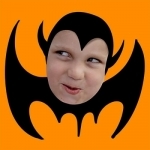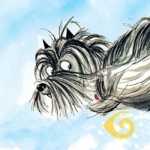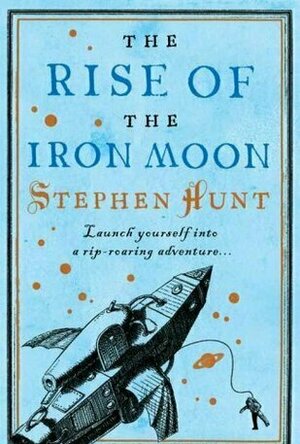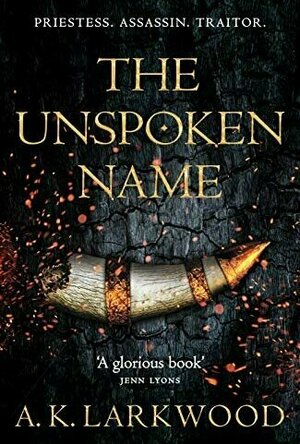Hazel (1853 KP) rated A City Dreaming in Books
Dec 14, 2018
<i>I received this book for free through Goodreads First Reads.</i>
“The city never sleeps, but it’s always dreaming.” And, by dreaming, Daniel Polansky clearly means nightmares. <i>A City Dreaming</i> is, for the lack of a better term, an urban fantasy novel. Embracing elements of dystopia and steampunk universes, it is difficult to determine the time period in which it is set. What can be established is that, wherever you are in the world, you are never far away from a monster.
<i>A City Dreaming</i> revolves around a semi-anonymous character known as M. M appears to be some form of magician who wishes he could spend his days listlessly staring into the bottom of his beer glass. Yet with misbehaving creatures and warring goddess living in the city of New York, peace is a rare phenomenon in M’s life. From demons to murders and mind-boggling situations, there is never a dull moment.
Each chapter of <i>A City Dreaming</i> is, in some way, an individual story. Apart from the occasional recurring character, no scenario is ever continued after the chapter concludes. This is initially a cause for confusion. With no clear direction or purpose, it is hard to remain engaged with the author’s imagination.
Readers familiar with contemporary fantasy writers, such as Neil Gaiman, may understand Polansky’s vision – think <i>Neverwhere</i> and <i>American Gods</i> combined, but weirder. M spends the majority of his time either inebriated or on drugs, and, to be frank, it would not be surprising to learn the author was on drugs at the time of writing. Imagine Neil Gaiman on drugs; that is how bizarre this book is.
Despite his penchant for recreational drugs, M is an intelligent character that can humorously talk himself out of impossible situations. However it is often a hopeless ordeal to fathom the process of his intoxicated mind. As a result, <i>A City Dreaming</i> loses its thrill and excitement.
As this is the first Daniel Polansky novel that I have read, I do not know whether this is his usual style of writing or whether it was an attempt at something new. What I did observe was the intelligence hidden behind the excess of expletives and lewd content. Polansky writes with certain aptitude, almost as if he has swallowed a thesaurus.
Fans of Neil Gaiman and Brandon Sanderson may enjoy <i>A City Dreaming</i> more than new readers, since they will already be familiar with the style of bemusing narration. <i>A City Dreaming</i> does not live up to the definition of a novel, however as short, connecting stories it provides the intended entertainment. Almost certainly, this book will be received with mixed reviews; nonetheless it will undoubtedly eventually find its fan base.
Phil Leader (619 KP) rated The Rise of the Iron Moon (Jackelian #3) in Books
Nov 25, 2019
Although this is the third book of the series and there are plenty of references to events that must take place in the previous books, and despite the writing being immersive rather than explanatory, I found it easy to get into the story.
The world is very interesting. I have read other novels set in a faux Victorian Steampunk-like world but nothing like this. This is like an alternative history, extremely divergeant from ours but with enough similarities that the combination is quite striking.
For example there was a civil war in the past which parliament won, as in the 'real' British history. However all of the royals have been locked up ever since in the Royal Breeding House - kept as figureheads under constant house arrest and threat of execution at the whim of parliament to appease the masses.
There are also countries ruled by thinking, steam driven machines. Others beneath the waves or living strictly by some political principal.
However the world is under threat. All the countries are being slowly invaded from the North by a very aggressive foe. Under attack the land of Jackals itself calls on its heroes to save the day. Purity Blake, one of the inmates of the Royal Breeding House. Molly Templar, writer of penny dreadful science fiction stories and sometimes defender of the land. Coppertracks, a machine life steam man and scientist. Their companions must overcome impossible odds and put aside the enmity between nations to fight off the attackers. Against all the odds, can they succeed?
The book is a little slow to start up, as the characters are introduced in their diverse environments. But slowly the threads are drawn together and each play their part in the fight. And as they begin to weave into the plot the pace quickens. The story twists and turns, always astonishing in its concept and direction.
The outstanding part of this book is the imagination that has gone into it. Nearly everything is completely different from our world and yet it ties together convincingly into a land both of industry and grime, poverty and privilege but also of very real myth and legend.
The ending is a little bit Deus Ex Machina but really this fits in with the tone quite well and at least keeps the pace up in the final pages. There are enough wonderful and fantastic ideas let loose to wander around in this book for several novels.
Definitely a recommended book. I now need to search out the first book - The Court Of The Air - so I can find out what has happened to the characters before.
Ross (3284 KP) rated The Unspoken Name in Books
Mar 2, 2020
Csorwe, an "orc", was chosen at birth to be sacrificed to the Unspoken One on her 14th birthday, something she has come to terms with, and other than the occasional time when she is possessed by the God in order to give people visions of the future, this is her lot in life. Until that fateful day comes when she is persuaded to leave what was to become her tomb and instead to become an assistant to the powerful magician Sethannai. Meanwhile, Shuthmili is a young trainee magician looking for historical relics while waiting to be summoned to take her place in one of a number of "hive minds" and serve her country. The characters cross paths searching for the Reliquary of an infamous magician.
So much of this world was left to the reader to work out for themselves. While I am keen to visualise things for myself, here there was a little too much left to imagination. The world felt confusing at time, undefined at others, and it did impact my sense of immersion and enjoyment of the book.
The story starts strongly, with some excellent passages, followed by massive jumps in time on journeys and through the world. This was a relief for me, having been burned by a number of books that described every single step, meal and encounter ad nauseam. It really felt like the author had a desire to tell an epic story but without the need for detailed narrative, a welcome mindset.
However, this trailed off after the first third, and the pace grinded to a crawl, with every interaction taking long rambling chapters to happen.
The characters in the story are all well defined and the reader finds themselves liking/loathing them as required.
The story for me was a little all over the place. We had one overarching story but a number of mini stories in order to achieve that and I really did find myself struggling to remember who was where, doing what and why. While I did enjoy the read, the pacing issues and unclear missions hit me hard.

Hoopa City
Education
App
**From the makers of Dr. Panda Games! Plan and build in Hoopa City! Combine different materials to...

Shiny Circus
Education and Games
App
The Shiny Circus is in town and Charlie, Alice and Ralph are off to the show! Charlie helps the...

Imagistory: Schools Edition - A Storytelling App
Education and Book
App
"This app is an educators dream come true" - BestAppsforKids.com Review (4.9 Stars) * "This app is...

CHOMP by Christoph Niemann
Book and Education
App
"Editor´s Choice Award" by Children´s Technology Review for Excellence in Design! wired.com:...

Hairy Maclary from Donaldson's Dairy
Book and Education
App
The immensely popular Hairy Maclary from Donaldson’s Dairy is now available as an interactive...

Craft your games! - Createrria 2
Games, Education and Stickers
App
Createrria, critically acclaimed, easiest game creator of all time is back with HUGE 2.0 update!...

Dog Jigsaw Puzzles
Games and Stickers
App
Cute dogs invite you to play dog puzzles for kids! Meet them in jigsaw puzzle! Kids, jigsaw...


